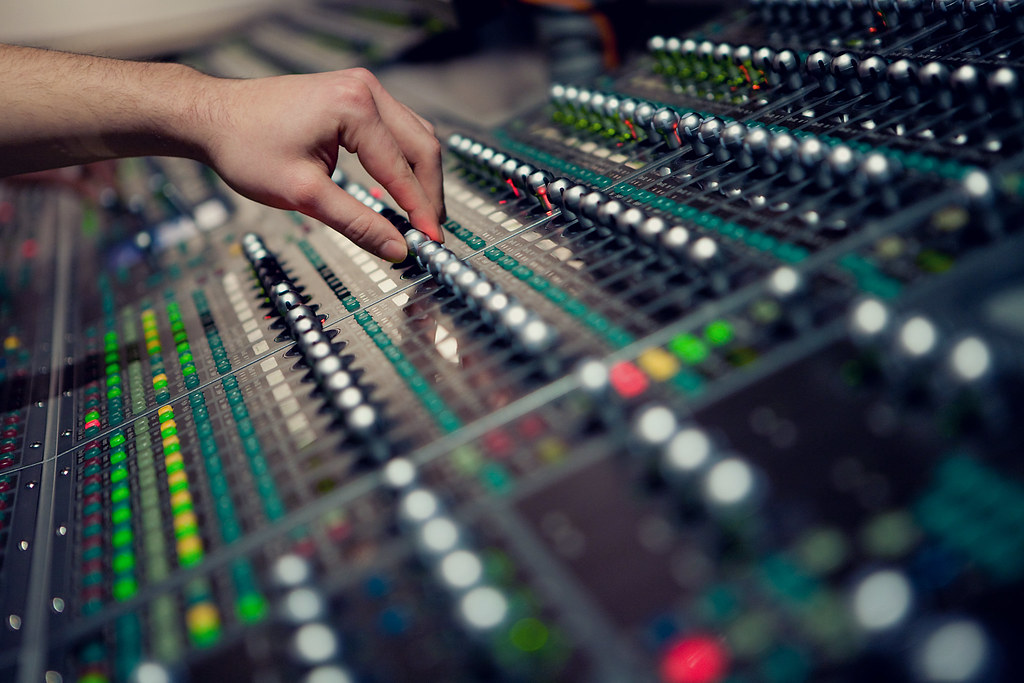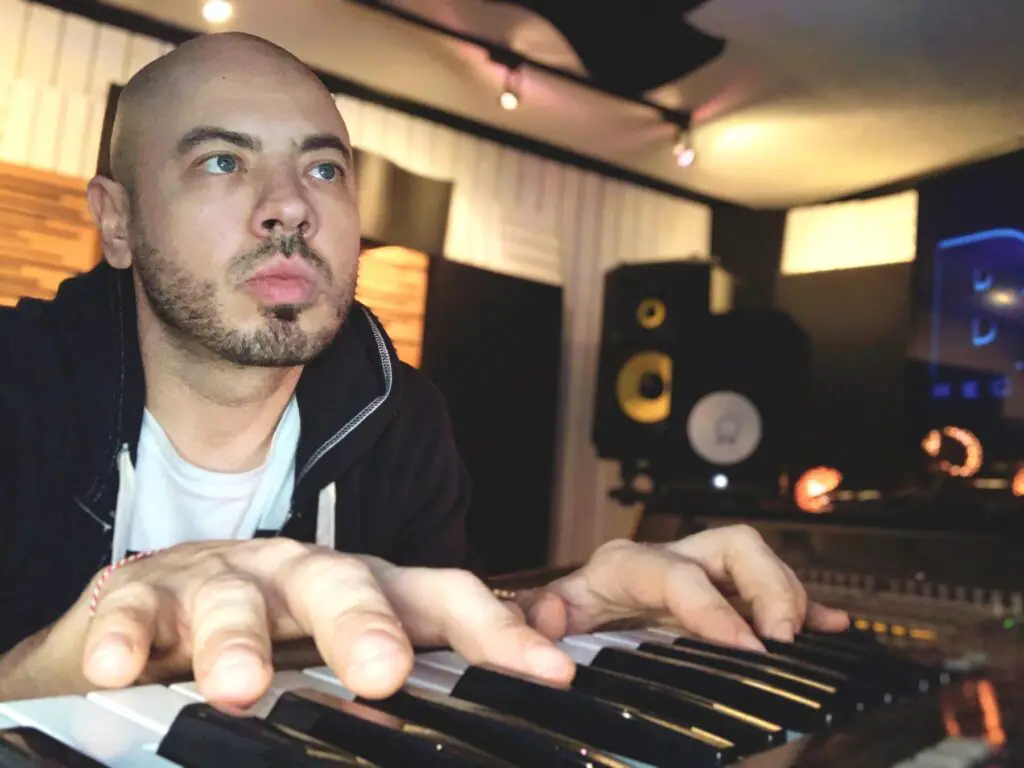Are you fascinated by the world of music production? Do you dream of creating your own beats and tracks that will set the world on fire? If so, then you know that becoming a successful music producer requires more than just a passion for music. It takes a deep understanding of various subjects that are essential to the craft. In this blog post, we’ll explore some of the key subjects that every aspiring music producer should study in order to master their craft and take their career to new heights. So, whether you’re just starting out or looking to improve your skills, read on to discover the essential subjects that will help you become a top-notch music producer.
Table of Contents
Understanding Music Theory: Key Concepts and Application in Production
Music theory is an essential subject for anyone who wants to become a successful music producer. It is the foundation of all music, and understanding its key concepts will help you create better tracks. You will learn about scales, chords, and harmony, which are crucial elements in creating melodies and harmonies that sound good together. You will also learn about rhythm and timing, which are important for creating beats that people can dance to. Understanding music theory will help you communicate with other musicians and artists more effectively, as well as give you the ability to write music that is both technically sound and emotionally compelling. It’s important to note that while music theory is important, it’s not the only thing you need to know to become a successful producer. You also need to have a good ear for music and be able to use technology effectively.
The Role of Technology in Modern Music Production
Technology has revolutionized the way music is produced and consumed. As a music producer, it’s essential to have a solid understanding of the tools and software used in modern music production. You’ll need to learn how to use Digital Audio Workstations (DAWs) like Ableton Live, Logic Pro X, or FL Studio. These programs allow you to record, edit, mix, and master your tracks. You’ll also need to know how to use virtual instruments and plugins to create unique sounds and effects.
In addition to DAWs, you’ll need to understand the hardware used in music production. This includes microphones, audio interfaces, studio monitors, and headphones. You’ll need to know how to set up a recording session and troubleshoot any technical issues that arise.
Staying up-to-date with the latest technology is crucial for success as a music producer. Attend industry conferences and workshops, read industry publications, and network with other producers to stay on top of emerging trends and technologies. With a solid understanding of technology in music production, you’ll be able to create high-quality tracks that stand out in today’s competitive market.

Audio Engineering 101: Essentials for Aspiring Producers
As a music producer, understanding the basics of audio engineering is crucial. This involves learning about sound waves, frequencies, and how to manipulate them to create the desired sound. Signal flow is another important concept to grasp, as it involves understanding how audio travels through different equipment in a studio setup.
Learning about microphones and their different polar patterns is also essential. Different microphones are suited for different recording situations, and knowing which one to use can make a big difference in the final product. Additionally, understanding equalization (EQ) and how to use it to shape the tonal balance of a track is crucial.
Aspiring producers should also learn about compression, which helps control the dynamic range of a track and make it sound more polished. Finally, knowledge of mixing techniques is essential for blending all the elements of a track together into a cohesive whole. By mastering these audio engineering essentials, aspiring producers can take their music production skills to the next level.

Mastering the Art of Composition: Techniques and Tips for Creating Great Tracks
To become a successful music producer, it’s crucial to master the art of composition. This means understanding how melody, harmony, rhythm and other key elements contribute to creating a great track. One important technique in composition is chord progression, which involves choosing chords that complement each other and create an emotional impact. Another essential skill is arrangement, where you learn how to structure various sections of your song so that they build up effectively towards a climax or resolution.
In addition to these technical aspects, there are also some tips for producing better compositions. For instance,limiting your choices can help you focus on what’s most important and avoid getting bogged down by endless possibilities. Furthermore, experimenting with different styles (not just those you’re comfortable with) can lead you to discover new techniques and sounds that may work well in your own productions.
Ultimately, mastering the art of composition takes time and practice – but by applying these essential concepts and techniques consistently over time,you’ll be able to create unique tracks that showcase your skills as a music producer.
Producing Different Genres: How to Adapt Your Skills Across Musical Styles
As a music producer, it’s important to have a diverse skill set that can be applied across different genres. Adapting your skills to fit the unique characteristics of each genre is crucial for producing high-quality tracks.
One way to achieve this is by studying the different elements that make up each genre. For example, if you’re producing a hip-hop track, you’ll need to focus on the rhythm and groove of the beat, while for a pop track, you’ll need to pay attention to catchy melodies and hooks.
Another important aspect of producing different genres is understanding the cultural context behind each style. This includes knowing the history and evolution of the genre, as well as its current trends and influences.
By expanding your knowledge and experimenting with different genres, you’ll be able to develop a unique style that sets you apart as a producer. Don’t be afraid to step out of your comfort zone and try something new – it could lead to some amazing creative breakthroughs!

Sound Design Strategies for Professional-Level Audio Creation
Sound design is an art form that involves creating and manipulating audio elements to produce a desired sound. It is an essential skill for music producers who want to elevate the quality of their tracks. Professional-level audio creation requires proficiency in sound design, which can be achieved through a variety of techniques and strategies.
One effective approach is to learn how different sounds are created using synthesisers or sampled instruments. There are numerous online resources available that offer tutorials on programming unique sounds from scratch. Another way to improve your sound design skills is by experimenting with effects like reverb, delay, distortion, and EQ.
It’s important for aspiring producers to familiarize themselves with industry-standard software such as Logic Pro X, Ableton Live Suite, FL Studio Producer Edition ,and more. These programs have robust built-in tools geared towards advanced sound manipulation.
Remember: the key ingredients in professional-quality production include creativity combined with technical expertise. Therefore acquiring skills necessary for producing exceptional sound designs can help increase your ability as a music producer!

Navigating the Business Side of Music Production: Legalities, Marketing, and More
Legal Matters are an important aspect of any business, including music production. It’s crucial to understand copyright laws and how they apply to your work. Registering your tracks with a performance rights organization (PRO) like ASCAP or BMI can ensure that you receive proper credit and royalties for your work.
Additionally, having Marketing Skills can help you promote yourself as a producer. Building a portfolio website showcasing your work is a great way to get started. Social media platforms like Instagram and Twitter also offer opportunities for self-promotion.
Finally, it’s important to have an understanding of the Music Industry Landscape, staying up-to-date with industry trends and networking with other professionals in the field. Attending conferences or joining organizations like NARIP (National Association of Record Industry Professionals) can provide valuable resources for growing your career as a music producer.

Growing Your Talent as a Producer Through Continuous Learning and Practice
Continuous learning and practice are key components to growing your talent as a music producer. With technology constantly evolving, it’s important to stay up-to-date with the latest software and hardware in order to produce quality tracks. Look for workshops or online courses that focus on specific areas of production you want to improve upon, such as mixing or mastering.
Collaborating with other musicians and producers can also expand your knowledge and skills set. Seek out opportunities to work with artists from different genres or backgrounds, which will challenge you creatively while helping you build a diverse portfolio of work.
Additionally, time management is crucial when it comes to improving your craft. Make a schedule for daily practice sessions and stick to it. Set goals for yourself, whether they be finishing a track within a certain timeframe or experimenting with new production techniques.
Remember that becoming an exceptional music producer takes time and dedication. Keep challenging yourself by trying new things, refining your skills through continuous learning, networking with other industry professionals, and putting in consistent practice hours each week.
In conclusion, studying music production is a must if you want to pursue a career in the music industry. It takes time and effort to become proficient in producing high-quality tracks that stand out from the rest. However, with dedication and passion for your craft, you can succeed as a music producer.
Whether it’s learning about music theory or mastering different genres of music, there are many subjects that you should consider studying to improve your skills as a producer. Additionally, understanding audio engineering concepts and sound design strategies will help elevate your productions even further.
Don’t forget the business side of things either! Knowing how to market yourself as a producer and navigating legalities is just as important as creating great tracks.
At Audio Blog Pros, we offer various resources on all aspects of music production. We encourage you to check out our other content and continue growing your talent through continuous learning and practice. Who knows? You could be the next big thing in the world of music production!
FAQs
Q: Who teaches music production?
A: Music production is taught by audio engineers and producers.
Q: What are the key subjects to study music production?
A: The key subjects for music production include music theory, audio engineering, and digital audio workstations.
Q: How important is music theory in music production?
A: Music theory is crucial in music production as it helps in composing, arranging, and understanding musical concepts.
Q: What is digital audio workstation (DAW)?
A: A DAW is a software used for recording, editing, and producing audio files for music production.
Q: How does audio engineering fit into music production?
A: Audio engineering is essential in music production as it involves recording, mixing, and mastering of audio tracks.
Q: What if I don’t have a music background?
A: You can still study music production without a music background by taking courses in music theory and audio engineering.


